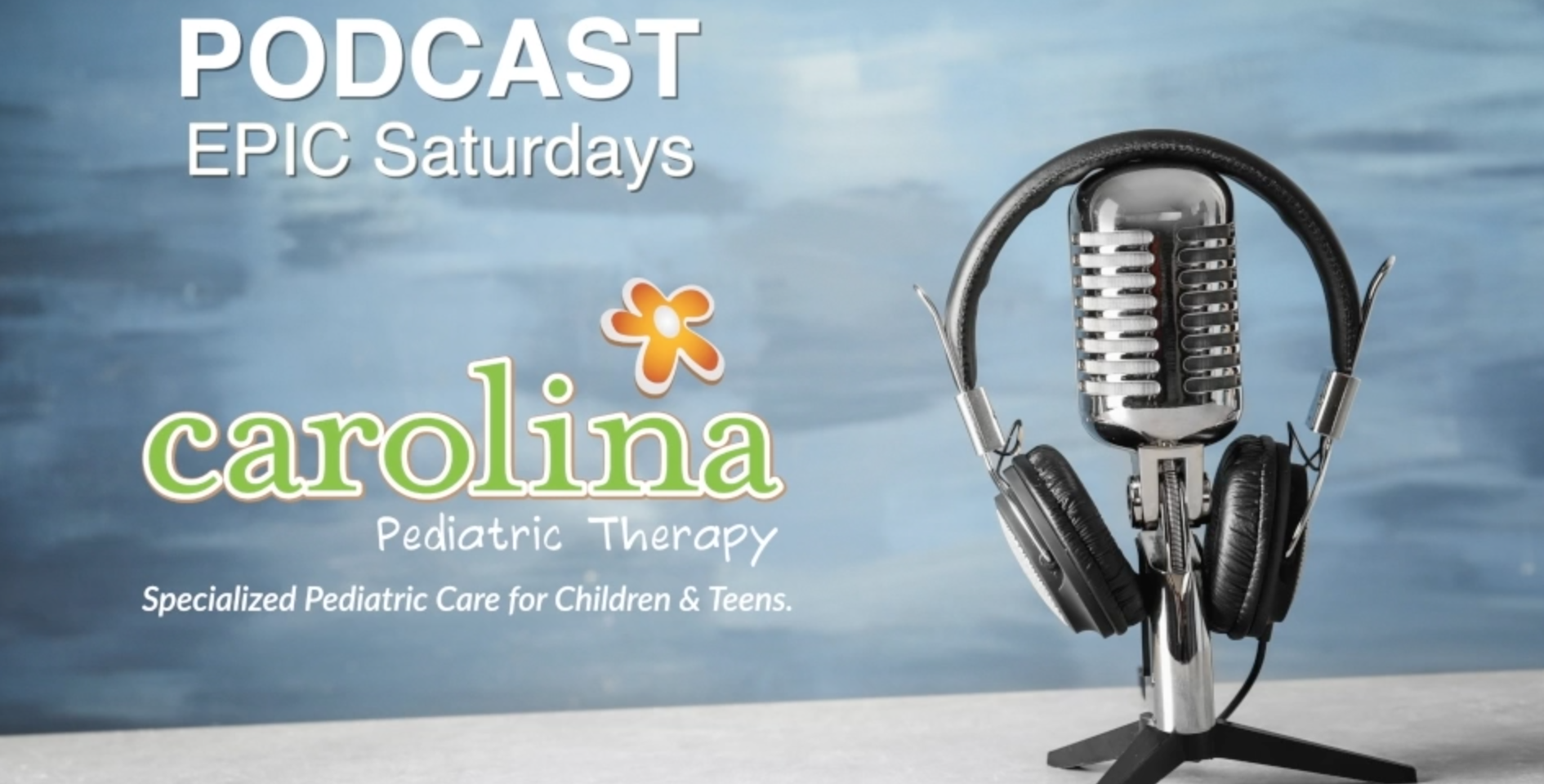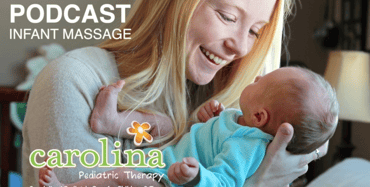Summer McMurry Podcast - EPIC Saturdays
Podcast with Summer McMurry, MS, CCC-SLP (Carolina Pediatric Therapy Founder & CEO) with Catherine Tintle, M.Ed. CCC-SLP discussing EPIC Saturdays, a program designed to help school aged children develop and refine their social skills in an unstructured, natural environment. (Listen on Apple iTunes & Google Play). *This program is designed for but not limited to children and teenagers ages 10-16.
Podcast Transcript
Summer McMurry:
Okay, hello, this is Summer McMurry, I’m the founder and owner of Carolina Pediatric Therapy. I’m a speech-language pathologist, and I’m here with Catherine Tintle, who’s also a speech-language pathologist at Carolina Pediatric Therapy, and she has a blog called The Creative SLP. Today we’re talking about the new program that we’re offering here at Carolina Ped’s, it’s called Epic Saturdays. So, Catherine, welcome.
Catherine Tintl:
Hi.
Summer McMurry:
Hi. So, can you tell me a little bit about EPIC Saturday, and what does EPIC stand for?
Catherine Tintl:
Sure. So, EPIC is actually an acronym, and it stands for Explore your community, Play games, Interact with others and Create and learn. And this program kind of came to fruition over years of me doing direct social skills groups when I lived in Atlanta, and that program was really great and creative, but it was more of a direct instruction. It has some of that awkwardness to it, so I was thinking let’s have it be less structured and be informal, and have the kids really have a say and have some autonomy in what they’re able to do.
Catherine Tintl:
So, if they want to go to the park, we can go out in the community. If they want to play games, we could do that, and we’re going to be practicing interacting with others in a natural environment, but with also getting the support from a speech therapist that’s been training in social thinking curriculum. Michelle Garcia Winters is a speech therapist who’s developed an amazing program to help kids that struggle with the different nuances of social interaction.
Catherine Tintl:
And the create and learn, it kind of comes in with … let’s say we have a skill that we’re working on, I like to have the kids come up with a visual to represent that to help them understand the concept and recall the concept in the moment. So, basically we’re just hanging out, but as things happen in a natural social interaction with kids, we kind of stop and talk about the skill and what would the visual look like. So, that’s basically it.
Summer McMurry:
That’s cool. So, who are the, like, what children would benefit the most from a group like this?
Catherine Tintl:
Well, I think everybody would benefit, and that’s one of the things I like to teach the kids, is that we’re all learning, improving social skills, and there’s something we can always work on improving. But kids, ADHD, kids with attention difficulties, kids with language disorders, high functioning autism, just really anybody, and you don’t have to have a diagnosis to come. If you feel like your children have a need, then it’s a good way to practice it.
Catherine Tintl:
We have some kids that just kind of came out because I have some parents that their kids are struggling socially at school, but as far as academically and their language, they’re not necessarily qualifying for direct speech therapy, and in a one on one setting, but also in a one on one setting there’s only so much you can do, it’s not a social interaction.
Summer McMurry:
It’s you and the therapist.
Catherine Tintl:
And it’s an adult. So, I have some clients that also get individual therapy, but then they practice it in a group setting. So, it’s actually better than individual therapy.
Summer McMurry:
Especially for the social skills piece, because they need to interact with their peers.
Catherine Tintl:
Yeah.
Summer McMurry:
And that’s-
Catherine Tintl:
And because it’s just unstructured, just hanging out, it takes the awkwardness away from it.
Summer McMurry:
Yeah, so, it’s in a really nonthreatening environment.
Catherine Tintl:
We’re in the OT sensory gyms, so we do obstacle courses, we play games. So, yeah, we have a great time.
Summer McMurry:
Awesome, that’s cool. So, give me an example, if a parent were thinking about signing up for this, what is an example of an activity that their child might experience while there?
Catherine Tintl:
Okay, so, most of the time, I like to learn about what motivates people. And so, what I’ve learned is that giving them the power to make a choice. So, I had all these paints and things ready, and I had all these games, and the kids just wanted to hangout in the OT sensory gym and do obstacle course. So, we developed an obstacle course, and in doing that, maybe somebody said something with a disrespectful tone of voice, or they interrupted, so we kind of take a minute and stop, go over to the whiteboard, and I’ll draw. It’s a pretty common analogy, the iceberg analogy.
Catherine Tintl:
So, an iceberg is really large above surface, but actually underneath it’s even bigger. So, I kind of draw a line and say, when you use this tone of voice, you’re actually communicating some other things underneath the surface. So, we kind of explicitly point that out, and maybe they’re not aware of it, maybe they are aware of it, but then we kind of practice how could you say that a better way. If you’re doing the obstacle course, and you need your peers help to get through it, you should care about what you say to them and how you treat them, because they’re not going to help you if you’re not respectful to them. So, that’s one example.
Summer McMurry:
Okay, that’s a really good example. So, they’re mostly just doing things that are really, the children are coming up with the activities and ideas, and then you’re kind of putting in some commentary on that, and stopping them, and doing some real time instruction at the moment in that just right time.
Catherine Tintl:
Yes.
Catherine Tintl:
Then I’ll have some copies ready to give to the parents after and say, this kind of thing happened today, and this was kind of the overarching struggle that we were working on, and this is a resource that I have that might help you continue that discussion at home, because I really think that’s an important part. This program will help you get a conversation started with your child at home to talk about social things as they happen and reflect on them, and just make an open conversation to help improve.
Summer McMurry:
Awesome, awesome. Well, thanks for sharing that today, I appreciate that.
Catherine Tintl:
Thank you.
Summer McMurry:
We’re going to share this out with our Carolina Ped’s community, and let them know what we’re doing. And if you’re interested in signing up for EPIC Saturdays, you can go to our website at carolinapeds.com, and then go to EPIC Saturdays. Click on there, and there’s a registration form, and you can just get signed up. Have a great day.
Catherine Tintl:
Thank you.
Summer McMurry:
Thanks, Catherine.
Catherine Tintl:
Thank you.
Want to know how a Therapist can Help?
Call (828) 398 0043 or click on the schedule button.
Post navigation
You may also like

Baby Signs
- Special Educators, Toddler Sign language, vocabulary, Baby Signs, Hearing Loss, deaf children, Speech-Language Pathologists, special needs, Autism, American Sign Language, child with autism, Toddler signs, Development, early childhood development, communication disorders, Apraxia, Baby language Signs, Infant Sign language, sign language, Infant signs


